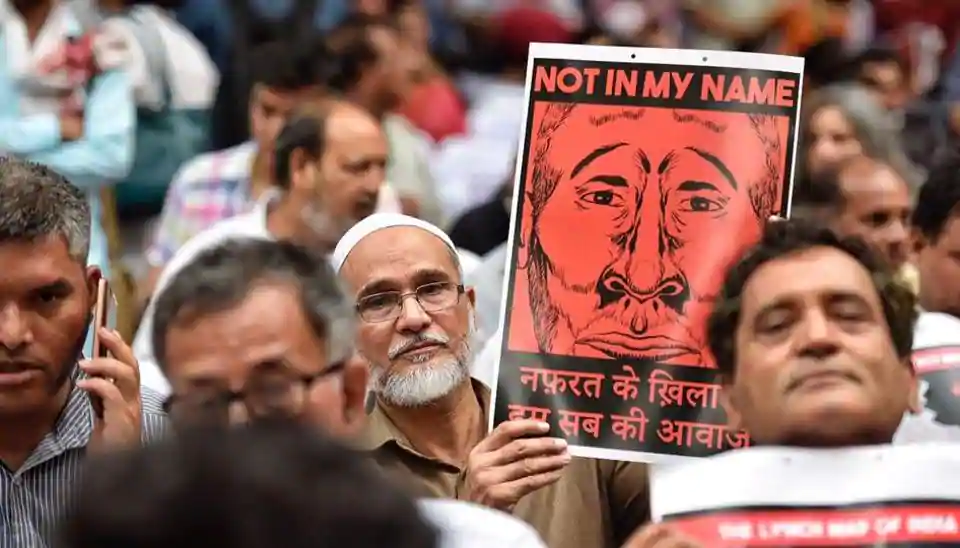The J&K Police have slapped the Public Safety Act (PSA) on Kashmiri Journalist Fahad Shah and arrested him a day before his bail application was scheduled to come up for hearing. Previously, the police had re-arrested the journalist, even though the court had granted him bail on two occasions.
Umair Ronga, Shah’s legal counsel, said the J&K Police had “sensed” that the court may grant the bail to the journalist “as the allegations levelled against the accused does not prima facie connect him with the commission on any offence”.
“The authorities have taken recourse to the Public Safety Act to prolong his detention and prevent him from doing his job. This is a violation of his fundamental rights and we are going to approach the Supreme Court for justice,” quotes The Wire.
Amnesty International has termed PSA, under which a person can be detained by police without charges for two years, as “a lawless law” and the rights advocacy group has called upon the Indian authorities to revoke the law.
The J&K police had earlier invoked the stringent anti-terror legislation – the Unlawful Activities (Prevention) Act – for the second time in over a month against Shah, who was arrested and granted bail twice before his rearrest a third time earlier this month.
The cycle of arrests and charges against Shah under the ‘draconian’ anti-terror law – which has been increasingly invoked to silence activists and critics of the government – has triggered an uproar, with global media advocacy groups and prominent activists reiterating calls for his immediate release.
Background
Fahad Shah is the editor-in-chief of The Kashmir Walla, a digital magazine reporting on socio-cultural issues from J&K, and was first arrested after the police registered a case against him in south Kashmir’s Pulwama district. He was arrested on Friday, 4 February, and charged under the Unlawful Activities (Prevention) Act (UAPA) for allegedly sharing social media posts with “anti-national” content with “criminal intention” that aimed to disturb law and order.
On March 5th Shah was re-arrested in a third case, soon after he was granted bail by a Shopian court. The Jammu and Kashmir Police arrested Shah in connection with a third FIR, filed against him in 2020 before he could be released.
Shah is presently lodged at the Safakadal police station in Srinagar. In the third FIR, Shah was charged under sections 147 (rioting), 307 (attempt to murder), 109 (abetment), 501 (printing or engraving defamatory matter), and 505 (public mischief) of the Indian Penal Code.
Fahad Shah was first arrested in FIR No. 19/2022 registered by Pulwama police under 13 Unlawful activities of which interim bail was granted by the special court in Srinagar. He was then arrested by the Shopian Police in FIR No 06/2021 of which the Munsif court also granted him interim bail.
He was granted bail on 26 February in the UAPA case, only to be arrested again in a second FIR filed by the J&K Police.
Umair Ronga said his client was granted bail in one case on March 5 but was arrested within hours in connection with another case.
What is The Public Safety Act (PSA)
The Public Safety Act (PSA), 1978, of Jammu & Kashmir is an administrative detention law that allows the detention of any individual for up to two years without a trial or charge. The Public Safety Act allows for the arrest and detention of people without a warrant, specific charges, and often for an unspecified period of time.
But in some cases, the Act makes provisions for the detained person to be informed about the reason of custody, and also gives them an opportunity to make a case against their detention to the government. However, the detaining authority is not required to reveal any facts “which it considers being against the public interest to disclose”. This Act extends to the whole of Jammu & Kashmir.
The PSA permits administrative detention for up to two years “in the case of a person acting in any manner prejudicial to the security of the state”, and for up to a year where “any person is acting in any manner prejudicial to the maintenance of public order”. A detention order under the PSA is issued either by the Divisional Commissioner or District Magistrate.
After the amendments were made to the PSA in 2012, the detention of a person below the age of 18 was strictly prohibited under this Act. According to Section 22, “no suit, prosecution or any other legal proceeding shall lie against any person for anything done or intended to be done in good faith” under the PSA. An individual detained under the PSA shall be produced before the magistrate within 24 hours.
The Advisory Board is a non-judicial body established under Section 14 of the PSA to review detention orders and determine whether there is sufficient cause for detention.
Source The Bussines Standard, The Wire, Kashmir Observer



